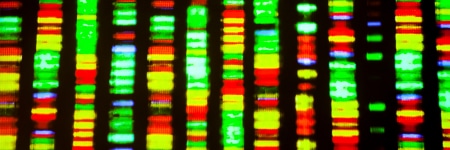Updates on key developments in genomics

Genomics first: identifying inflammatory disease
Scientists have discovered a new rare and deadly inflammatory disease in men, but how did genomics lead them to it?

Keeping genes in mind: genomics and mental illness
UCL Genetics Institute honorary professor and psychiatrist David Curtis explains the challenge of understanding mental illnesses like schizophrenia, and how recent advances in genomics could have a real impact on clinical practice

Covid-19: what’s in the genes?
We take a look at the latest developments in our understanding of the role of the human genome when it comes to disease severity

RNA-based therapies: two types explained
What are RNA therapies and how are they used? We compare the two licensed types – antisense and RNA interference – to find out more

GEP fellow publishes new study
The benefits of involving young people in genome sequencing decision making are explored by GEP fellow Dr Celine Lewis in her recently published study

Genomics in practice: obstetrics and gynaecology
Dr Edward Morris explains the important role played by genomics in the practice of obstetrics and gynaecology - and its impact on patient care

Genome UK: making the genomic dream a reality
The government has set out its vision for how the UK will harness the power and potential of genomics for the benefit of patients. Here are the top highlights

Genomic approach predicts risk of oesophageal cancer
Can we use genomics to accurately predict the development of cancer in those with precursor conditions? We look at newly published results from a 15-year study to find out

Newborn screening: the pros and cons of genome sequencing
Could genome sequencing replace the blood spot test? We review the potential benefits and drawbacks of a more direct approach to screening

Breakthrough in the battle against neurodegenerative disease
New genomic research could shed light on the cause of two life-limiting neurodegenerative conditions and provide targets for potential therapies and treatments

How genomics is changing vaccines
The speed at which a vaccine is developed can be crucial. RNA vaccines are cheaper and faster to make, but there's yet to be one licensed. Will this change with Covid-19?

The quadruple helix: a new epigenetic marker?
We all know what DNA looks like, or do we? We take a look at why the quadruple helix can occur and how it could unlock new avenues for cancer therapy

What are copy number variants?
Everyone has unique variants in their genome - and many are harmless - but which types can have an impact on our health and how do they occur?

Mitochondrial disease: the genomics challenge
Mitochondrial diseases are overwhelmingly genetic in origin, so why are gene therapies so difficult to develop? We take a deep dive to find out more.

How NHS research is finding new ‘rare disease genes’
As whole genome sequencing becomes more accessible, our understanding of rare disease is advancing at speed. We look at the latest findings from two NHS studies.

New genomic data studies launch to combat Covid-19
How can genomic data help in the fight against coronavirus? We look at the pros and cons of two new approaches

What is NIPD?
Non-invasive prenatal diagnosis can provide vital information about a pregnancy, but when should the technique be used, and how does it differ from NIPT?

Genome editing trial suggests cure for blood diseases
Recent tests have established a potential cure for sickle cell disease and beta thalassaemia by using genome editing on bone marrow stem cells

The impact of Covid-19 on rare disease communities
Guest author Dr Christine Patch explains the challenges in supporting patients with rare disease during the pandemic, as well as the opportunities that may arise

Genomic trigger found for inflammation
Could we ‘turn off’ our body’s unwanted immune responses? New research has found a genetic switch in our non-coding DNA that could help treat complex allergic disease
 https://www.genomicseducation.hee.nhs.uk/wp-content/uploads/2020/05/exomesequencing_1350x450.jpg
450
1350
Ben Armstrong
/wp-content/uploads/2018/06/gep-white-logo-sm-v2.png
Ben Armstrong2020-05-28 14:10:352021-03-10 14:55:17Rapid exome sequencing: a look inside the lab
https://www.genomicseducation.hee.nhs.uk/wp-content/uploads/2020/05/exomesequencing_1350x450.jpg
450
1350
Ben Armstrong
/wp-content/uploads/2018/06/gep-white-logo-sm-v2.png
Ben Armstrong2020-05-28 14:10:352021-03-10 14:55:17Rapid exome sequencing: a look inside the lab

